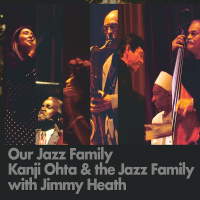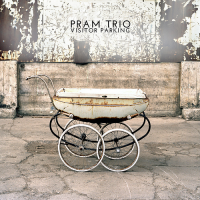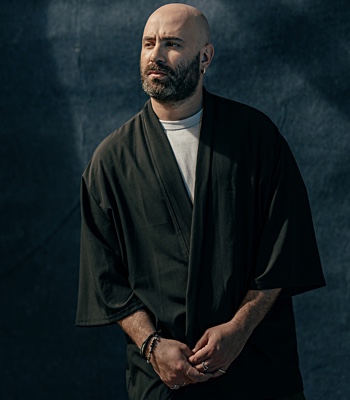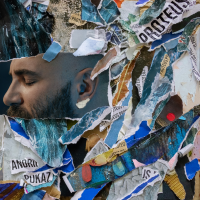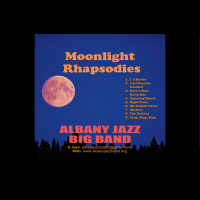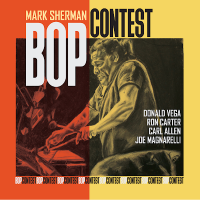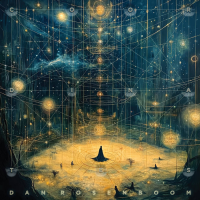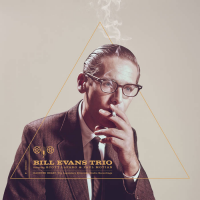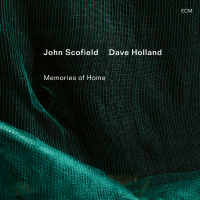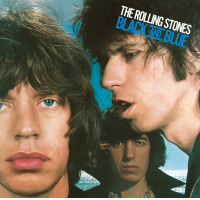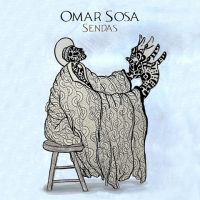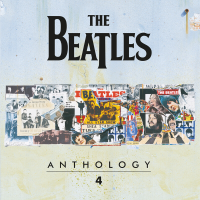Home » Jazz Articles » Reassessing » Dizzy Gillespie: Dizzy Gillespie: Dizzy’s Big 4
Dizzy Gillespie: Dizzy Gillespie: Dizzy’s Big 4
 Dizzy Gillespie
Dizzy Gillespie Dizzy's Big 4
OJC
1975/2013
Concord Music Group kicked off their Pablo Records 40th anniversary celebration with the releases of John Coltrane: Afro Blue Impressions (Pablo, 1963/2013) and Sarah Vaughan: Sophisticated Lady: The Duke Ellington Songbook (Pablo,2013) both supplemented by improved programming. These releases have been followed by additional straight remasters of: Zoot Sims And The Gershwin Brothers (Pablo, 1975/2013), Art Tatum: Solo Masterpieces, Volume 1 (Pablo, 1975/2013), and, now, Dizzy's Big 4.
Trumpeter Dizzy Gillespie first recorded "Be Bop (Dizzy's Fingers)" in New York City, January 9, 1945, with a sextet exactly one month before he recorded what is considered to be the first Modern Jazz (be bop) recordings: "Groovin' High" and "Blue N' Boogie." This was a heady time in jazz when big bands were giving way to smaller combos and the music was to become more intimate. Be bop was creativity at white heat burning itself out on March 12, 1955 in New York City's Stanhope Hotel. How does this music fare, in its creator's hands thirty years later? Norman Granz knew, and took advantage of it.
Gillespie, who figured large in the second outpouring of Pablo releases, finds friendly confines within this cozy guitar-anchored quartet. Bassist Ray Brown was part of Gillespie's short-lived big band rhythm section back in the day while guitarist Joe Pass and drummer Mickey Roker were of more recent vintage, but fully steeped in the vernacular of bop. The compositions chosen for performance are firmly in the bop vein, propelled by Gillespie's quicksilver mind and deliver. That said, the the global sonic footprint is one of a delicate surface tension. The playing is fluid and light, an essence or aroma that piques the memory.
The seven original selections released originally are supplemented with alternate takes of Irving Berlin's "Russian Lullaby" and Fats Waller's "Jitterbug Waltz." Gillespie's playing on the Waller tune, both takes, is revelatory for both Gillespie's improvisational and arranging facilities. Roker and Brown establish an exotic rhythm over which Gillespie spreads muted notes like pedals. Pass provides filigree and harmonic directions, but the four musicians function very independently and this independence never threatens the integrity of the whole performance. "Russian Lullaby" is effected the same way. Gillespie choses a two-part format, where the song begins slow and plaintively with much introspection. Gillespie and Brown share an exquisite duet for a couple of choruses before picking things up and the remainder of the band joins. It is an evolution from largo to allegretto to presto.
The collection is centered on "Be Bop (Dizzy's Fingers)," "Birk's Works," and "September Song." This is possibly the finest playing of Gillespie's late career. Pass is also in superb form. Pass is the guitar equivalent of pianist Oscar Peterson and the two of them acolytes of Art Tatum. Pass, particularly in solo performance, too often sacrificed practical brevity for virtuosity as Tatum did. A double-edged sword, virtuosity can at once be impressive and awe inspiring and boring. On this recording, Pass remains in the former camp, adding just enough juice to keep the Gillespie stimulus inspiring the recording date.
Tracks: Frelimo; Hurry Home; Russian Lullaby; Be Bop (Dizzy's Fingers); Birk's Works; September Song; Jitterbug Waltz; Russian Lullaby (alternate); Jitterbug Waltz (alternate).
Personnel: Dizzy Gillespie: trumpet; Joe Pass: guitar; Ray Brown: bass; Mickey Roker: drums.
Tags
Dizzy Gillespie
Reassessing
C. Michael Bailey
conqueroo
United States
OJC
Norman Granz
Ray Brown
Joe Pass
Mickey Roker
Irving Berlin
oscar peterson
Art Tatum
PREVIOUS / NEXT
Support All About Jazz
 All About Jazz has been a pillar of jazz since 1995, championing it as an art form and, more importantly, supporting the musicians who make it. Our enduring commitment has made "AAJ" one of the most culturally important websites of its kind, read by hundreds of thousands of fans, musicians and industry figures every month.
All About Jazz has been a pillar of jazz since 1995, championing it as an art form and, more importantly, supporting the musicians who make it. Our enduring commitment has made "AAJ" one of the most culturally important websites of its kind, read by hundreds of thousands of fans, musicians and industry figures every month.



